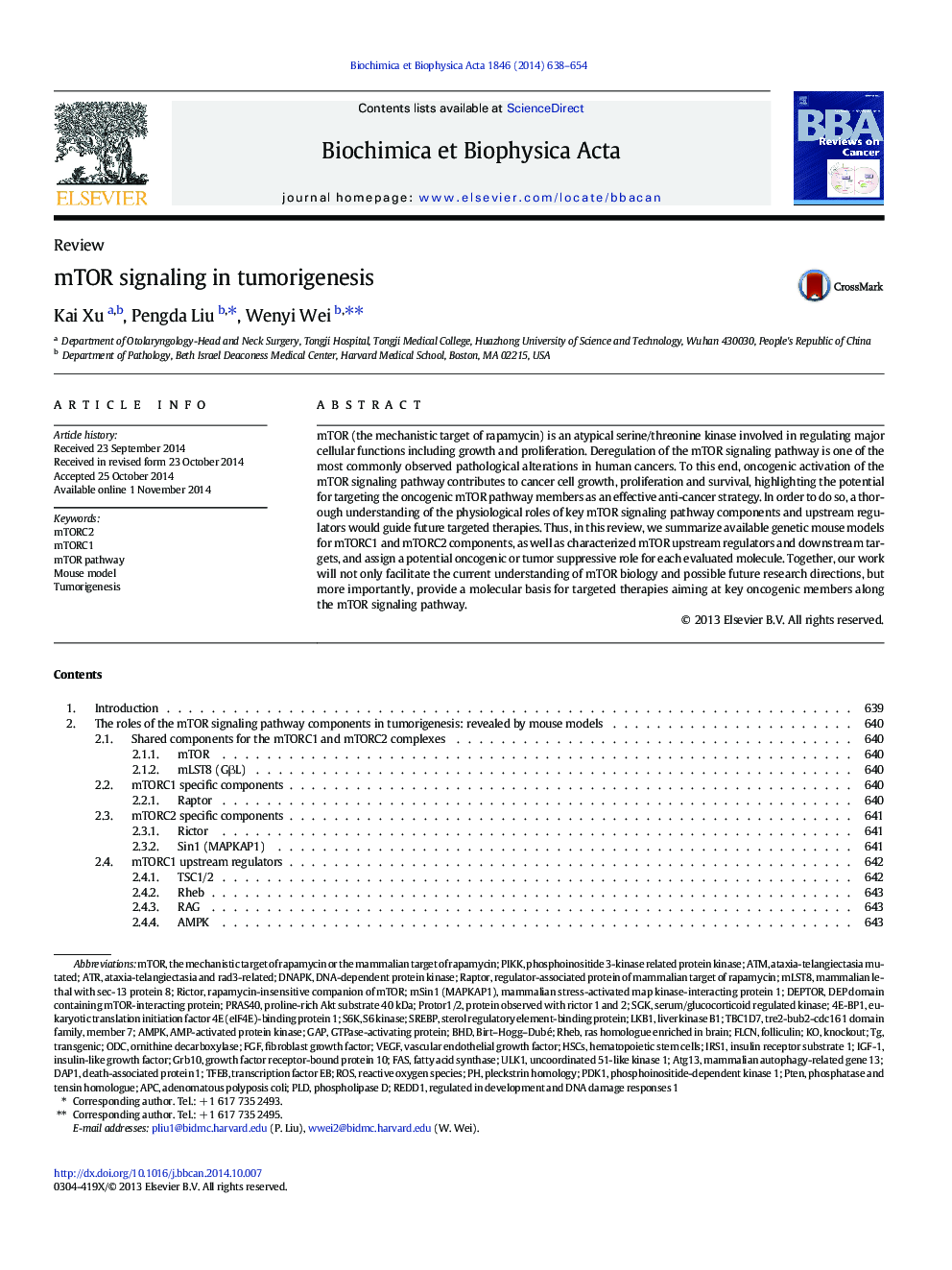| Article ID | Journal | Published Year | Pages | File Type |
|---|---|---|---|---|
| 8429500 | Biochimica et Biophysica Acta (BBA) - Reviews on Cancer | 2014 | 17 Pages |
Abstract
mTOR (the mechanistic target of rapamycin) is an atypical serine/threonine kinase involved in regulating major cellular functions including growth and proliferation. Deregulation of the mTOR signaling pathway is one of the most commonly observed pathological alterations in human cancers. To this end, oncogenic activation of the mTOR signaling pathway contributes to cancer cell growth, proliferation and survival, highlighting the potential for targeting the oncogenic mTOR pathway members as an effective anti-cancer strategy. In order to do so, a thorough understanding of the physiological roles of key mTOR signaling pathway components and upstream regulators would guide future targeted therapies. Thus, in this review, we summarize available genetic mouse models for mTORC1 and mTORC2 components, as well as characterized mTOR upstream regulators and downstream targets, and assign a potential oncogenic or tumor suppressive role for each evaluated molecule. Together, our work will not only facilitate the current understanding of mTOR biology and possible future research directions, but more importantly, provide a molecular basis for targeted therapies aiming at key oncogenic members along the mTOR signaling pathway.
Keywords
mTORC2DAP14E-BP1mTORC1HSCsAMPKSREBPULK1IRS1Ornithine decarboxylaseTFEBODCBHDPDK1Grb10S6KRHEBFLCNRedd1PRAS40DNAPKRegulated in development and DNA damage responses 1Atg13mLST8DEP domain containing mTOR-interacting proteinLKB1PLDIGF-1APCATRFASFGFmTORAMP-activated protein kinaseataxia-telangiectasia mutatedPIKKROSS6 kinaseSGKadenomatous polyposis colifatty acid synthaseTransgenicTumorigenesisATMRaptorRictorinsulin receptor substrate 1hematopoietic stem cellsGAPTranscription factor EBVascular endothelial growth factorVascular Endothelial Growth Factor (VEGF)fibroblast growth factorInsulin-like growth factorPhospholipase DFolliculinMouse modelmTOR pathwayknockoutPleckstrin Homologyrapamycin-insensitive companion of mTORRas homologue enriched in brainPhosphatase and tensin homologuephosphoinositide-dependent kinase 1DNA-dependent protein kinaseSterol regulatory element-binding proteinGTPase-activating proteinPtenliver kinase B1DEPTORReactive oxygen species
Related Topics
Life Sciences
Biochemistry, Genetics and Molecular Biology
Cancer Research
Authors
Kai Xu, Pengda Liu, Wenyi Wei,
